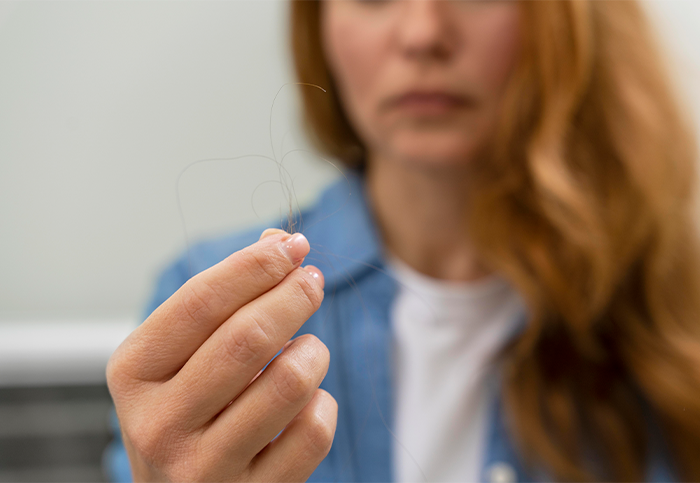Top 5 Signs of Premature Aging, How Glutathione Supplements Can Help?
Our body undergoes an aging process naturally over time. Premature aging is when the signs of aging appear earlier than they should. It occurs when we look older than our actual age. There are different signs of premature aging, and we will discuss them one by one.
What are the Signs of Premature Aging?
1. Wrinkles
With age, collagen and glutathione, begin to decline in our body. Collagen is necessary to maintain the firmness and elasticity of the skin. It also helps to retain the skin moisture at optimal levels. Glutathione helps reduce wrinkles on the skin by reducing oxidative stress in the body. It gives a beautiful, glowing, and vibrant look to our skin from the inside out.
2. Age Spots/ Liver Spots
Although these are called liver spots, they have nothing to do with our liver. These are called so just because they resemble to the color of the liver. These dark spots form on the skin, especially on the face, and forearm. These spots are more likely to form in elderly people (who are 50 years older or above), but those who have great exposure to UV light can also face this problem, irrespective of their age group.
3. Hair Loss
As we become older, we face hair loss issues and graying of hair. But some people suffer from hair loss issues even at a young age. It can be due to the deficiency of collagen protein, low levels of iron, deficiency of biotin, and of certain antioxidants, such as vitamin C, and E. Severe hair loss can cause male pattern baldness which is a sign of premature aging.
4. Hyperpigmentation
Hyperpigmentation is also a sign of premature aging. In hyperpigmentation, melanin produces in higher amounts than usual and makes the skin darker. In hyperpigmentation, dark brown patches form on our skin, which often occurs due to high exposure to sunlight and glutathione deficiency.
5. Thin and Bony Cheeks
Our skin loses its elasticity and strength due to the loss of collagen from it. The loss of this structural protein will result in bony cheeks and a saggy appearance of the skin. It will also cause the onset of premature wrinkling, dehydration, and freckles on our skin.
Another reason for the wrinkling, and saggy skin, is the deficiency of glutathione, which helps maintain the skin tone, reduce the signs of premature aging and retain the natural glow of the skin.
What Are the Causes of Premature Aging?
The possible causes of premature aging are as follows:
1. Smoking
Among those who smoke, the toxins, present in nicotine, alter their body cells. These toxins break down collagen and elastic fibers in their skin, leading to wrinkles, and a hollow, bony face.
2. Unhealthy Diet
According to some research reports, a diet rich in sugar or refined carbohydrates, fatty foods (mainly trans fats), and low consumption of water may result in early aging. On the other hand, a diet high in fruits and vegetables helps prevent signs of premature aging because they contain a high amount of vitamins and minerals, some of which act as antioxidants to fight free radicals present in the body.
3. Poor Sleep
A few studies show that low-quality or less amount of sleep makes our cells age faster. Because during sleep, those cells that have undergone wear and tear the whole day, get repaired by different hormonal mechanisms in the body.
4. Stress
When we’re stressed, our brain releases cortisol, a stress hormone. Cortisol reduces the synthesis of Hyaluronic Acid and Collagen, the two important molecules that are necessary for maintaining the strength, and moisture of the skin. Hyaluronic acid helps keep body tissues lubricated and moist. Collagen helps make our skin firm & flexible and gives it a younger look. Reduced collagen and hyaluronic acid in the body can result in premature aging of the skin.
5. Exposure to Ultraviolet (UV) Light
Ultraviolet radiations speed up the premature aging process. Because they contain free radicals which are harmful chemicals that cause oxidative stress in our body.
Oxidative stress is the primary cause of premature wrinkling of our skin. It occurs when there is an imbalance between free radicals and antioxidants in our body. Free radicals can break down our skin's connective tissue i.e., collagen which is present in the deeper layer of our skin to maintain its strength and elasticity.
Which are the best supplements of glutathione and how do they help in reducing the signs of premature aging?
Nutrifactor’s Gluta Fair, Gluta Glime, and Glutazon are the best glutathione and are helpful in minimizing the signs of premature aging of the skin.
1. Gluta Fair
Gluta Fair has an amazing formulation to provide antioxidant support to our body. It contains L-glutathione and Vitamin C (ascorbic acid). Both of these are strong antioxidants that help reduce oxidative stress in the body.
2. Gluta Glime
Nutrifactor’s Gluta Glime contains an active form of glutathione i.e., L-Glutathione, along with vitamin C, ALA, and vitamin E. These powerful antioxidants fight free radicals in the body and help reduce oxidative stress and premature aging of the skin.
3. Glutazon
Nutrifactor’s Glutazon contains a decent amount of glutathione. Glutathione is a tripeptide molecule, composed of three amino acids, cysteine, glutamic acid, and glycine. It is significant in detoxifying the body from toxins to help reduce the signs of premature aging like wrinkles, dryness of skin, and saggy skin.
Consuming any of these Nutrifactor supplements may help reduce the signs of premature aging of the skin due to the amazing antiaging effects of glutathione. It can also help in making your skin smooth, well-nourished, and vibrant.
References:
• https://www.researchgate.net/profile/Prashant-Agarwal-2/publication/317042840_Assessment_of_Anti-aging_Efficacy_of_the_Master_Antioxidant_Glutathione/links/5922c7b5458515e3d408bc6e/Assessment-of-Anti-aging-Efficacy-of-the-Master-Antioxidant-Glutathione.pdf
• https://www.healthline.com/health/beauty-skin-care/premature-aging#causes
• https://www.ncbi.nlm.nih.gov/pmc/articles/PMC5413479/
• https://pubmed.ncbi.nlm.nih.gov/18670186/
• https://www.mayoclinic.org/diseases-conditions/age-spots/symptoms-causes/syc-20355859
• https://www.healthline.com/nutrition/hyaluronic-acid-benefits
• https://pubmed.ncbi.nlm.nih.gov/7352952/



